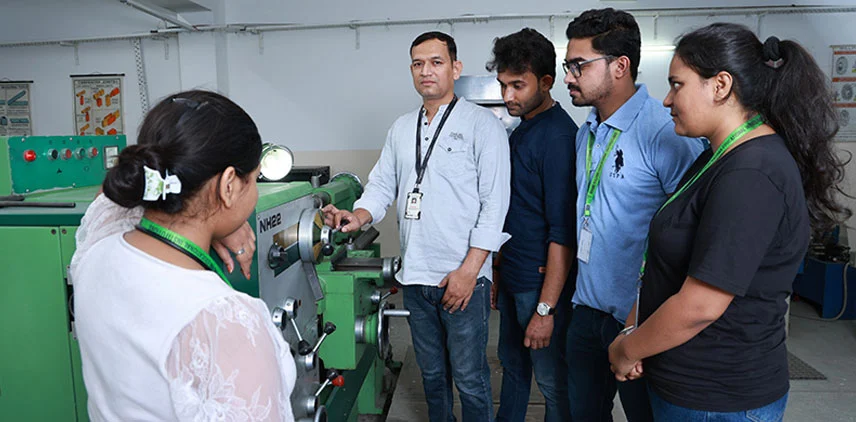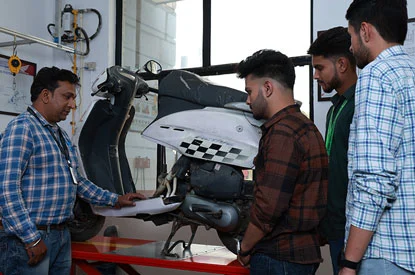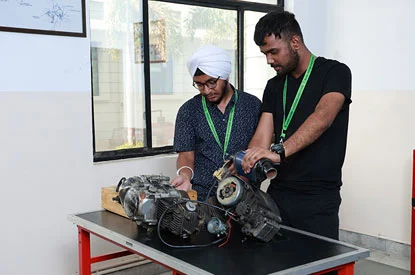The Department of Mechanical Engineering (ME) was established in 1997 with a focus on imparting the fundamental concepts and experiential knowledge both theoretically and practically. Keeping in view the growth in industry and increasing demand for manufacturing and design industry, electronic component manufacturing, drones design & assembly, electric vehicles, the department also offers industry associated courses and specializations. To meet the needs of industry and R&D departments, the course curriculum has been carefully customized to meet the rising trend. The department offers baskets of courses leading to different verticals for one’s own interest and choice. B.Tech in Mechanical Engineering and with specialization in Electric Vehicle and intent a Drone Technology Specialization Course in upcoming years to come. M.tech in Industrial Engineering is offered here to make students ready for managerial roles (with in-depth technical knowledge of machinery and system) in Industry. Ph.D. in Mechanical Engineering is offered for better insight of a particular topic and related issues. The department has various equipment’s on Thermal Engineering, Manufacturing Technology, Fluid Mechanics, Fluid Machines and Turbo Machinery, Applied Mechanics, Strength of Material, Metrology etc. A fully equipped design center with all basic as well as advanced software including AutoCAD, CATIA, CREO, ALTAIR, MATLAB, etc. is available in the department. Qualified and experienced faculty members from various reputed institutes are dedicatedly working to roll out manufacturing, electric vehicle and mechatronics after B.Tech in Mechanical Engineering.






